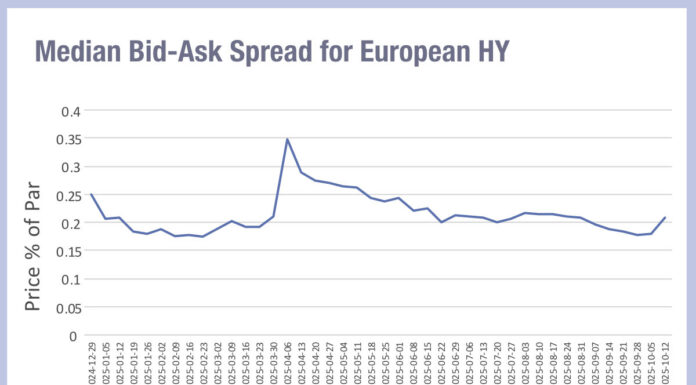The UK’s Financial Conduct Authority (FCA), has launched a consultation regarding liquidity stress testing for asset managers, as part of its review into strengthening investor protection in funds. The review includes guidance on swing pricing, reporting and liquidity testing.
“The regulatory framework contains rules around liquidity management,” the FCA writes. “Many of these rules are designed to protect consumers. They aim to ensure that funds pass on appropriately the costs of dealing in investments and that all unit holders are treated fairly. But the growth of the fund industry means that liquidity management in funds is also relevant to the good functioning of markets. This is consistent with findings of global standard setters, for example the Financial Stability Board (FSB). The International Organization of Securities Commissions (IOSCO) recently recognised that the UK is fully consistent with the recommendations of its 2018 report on liquidity risk management for collective investment schemes. But we think there are areas where we can further reinforce best practice. We want to see fund managers carrying out effective liquidity risk management. We expect firms to comply with the liquidity stress testing guidelines issued by the European Securities and Markets Authority (ESMA). We plan to convert these into rules and guidance in our Handbook.”
It notes that there are no specific rules for portfolio managers on investment due diligence or managing liquidity at present, other than those implicit in other rules, and that without regulatory standards there “could be uncertainty about what a portfolio manager is expected to do, at a minimum, in these areas.”
It reports it is considering removing or significantly restricting the limitation around liquidity stress testing so that the qualification ‘where appropriate’ does not give fund managers a reason not to carry out stress tests. It is also considering making the rules around dilution adjustments, sometimes referred to as ‘swing pricing’ and other anti-dilution mechanisms, clearer as although the rules enable fund managers to deal with the costs to investors of dilution, firms use these rules in different ways, “which could cause harm to consumers.”
“Differing practices in this area could increase the risk of a first mover advantage,” it writes. “This could be seen as posing a risk to financial stability. We 28 could make clearer our expectations about the factors that a fund manager should or must consider when calculating a dilution adjustment. We want our rules to work effectively and would welcome feedback on areas that we could helpfully make clearer through rules or guidance. Relatedly, we are considering what reporting may be necessary to ensure we have appropriate regulatory oversight.”
The FCA currently receives reporting of liquidity categories or ‘buckets’ for alternative investment funds (AIFs) and is considering extending this to UCITS funds and potentially requiring funds to make public disclosures of the liquidity of their investments.
It is also looking at increasing the obligations upon depositaries in overseeing the activities of fund managers. The depositary oversees how the manager manages the fund in line with the rules and the fund prospectus.
“Our experience has been that depositaries have not always intervened or challenged fund managers although we would have expected them to,” the FCA writes. “They do not always achieve effective outcomes when conducting their oversight duties. Our supervisory expectations of depositaries sometimes differ from depositaries’ own interpretations of our rules. Requirements also differ by fund category. We think there’s benefit in updating and making our rules clearer for depositaries, fund managers and investors relying on these activities taking place.”
In cases where markets have changed significantly since rules were written the regulator is looking at areas where it could consider making changes to modernise or improve fund rules.
An example is within the ‘eligible assets’ regime for UCITS, which sets out the requirements for what a UCITS fund can invest in, the liquidity characteristics of assets are referenced, and UCITS funds are permitted to invest up to 10% of their portfolio into assets that do not meet the eligible markets criteria. These rules interact with the requirements around liquidity risk management in COLL 6.12.
“We see value in the rules having flexibility so that managers can deal with circumstances that arise outside their control,” writes the FCA. “For example, we would not want the rules to force managers to sell investments that stop being eligible under the eligible markets rules, if to do so would clearly not be in the best interests of investors. But we are concerned that these rules might not be entirely compatible with the core offering of UCITS, which is to create a fund structure that mainstream retail investors can invest in with confidence. The complexity of this regime also potentially makes it more difficult for fund managers and depositaries to make judgments about investments. One option would be for us to give guidance on our expectations around the 10% rule. For example we could say that we would expect managers not to use the 10% rule in a way that undermines the liquidity of the fund, or their ability to deal with changes in the fund over time.”
Comments on the need for change to these areas can be submitted to the FCA by 22 May 2023.
Its next steps, following consideration of the responses will be to consider what, if any, amendments it should make to the UK regime for funds and asset managers as it incorporates elements of the retained EU law for funds and asset managers into the FCA Handbook.
©Markets Media Europe 2023
©Markets Media Europe 2025














